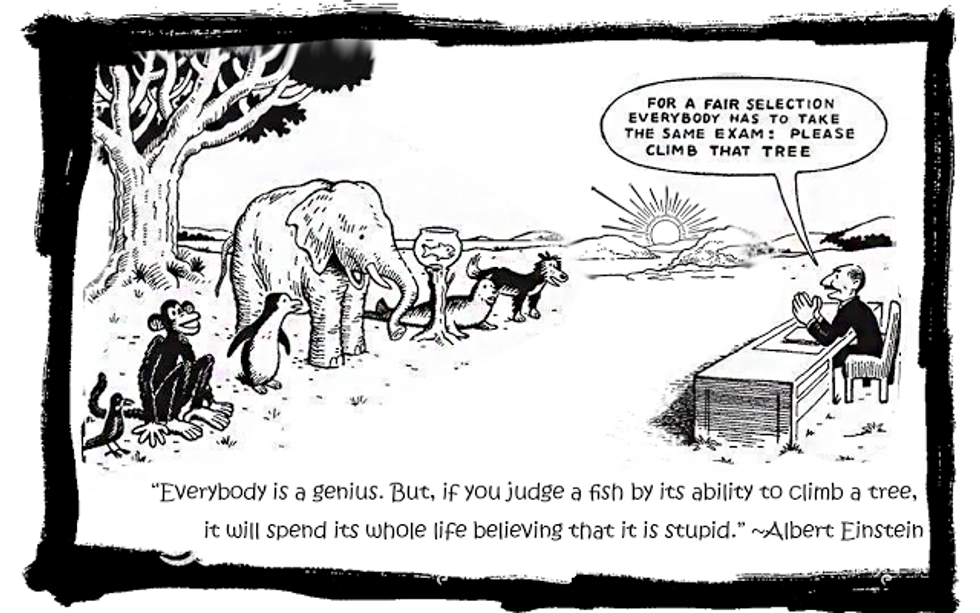Things I wanted in school: to be accepted and fit in.
Things I never wanted to be: "sped."
Things I know now: I was misguided.
Growing up, I did well in school, I was an athlete, I had friends. While I had my fair share of difficulties over the years, I had a generally smooth time in school. One time, however, in fifth grade, I recall being pulled aside by a teacher and told that I would be taken out of class once a week to work on reading aloud, as I was slightly behind the curve in that area. I went home and cried. Not because I was mad that I needed a little help, but because I was not like those other kids who needed special help. I was smart.
This incident in fifth grade is one experience that I value most now that I am older. Not because I am proud of the way that I reacted, quite the opposite, I am especially disappointed in myself for reacting that way. Granted, I was in fifth grade and my reaction is hardly scold-worthy, but looking back, it allows me to reflect on the damaging stigma that is associated with receiving any kind of extra help in school. I was only in fifth grade and I was painfully aware of the social implications of being in a special education program. To a fifth grader, special education meant there was something wrong with you, that you were abnormal and that that was bad.
Understanding that my experience was a minuscule glimpse into a child’s perspective about special education, there are children who face far larger challenges when it comes to extra help in the classroom. When a child receives a program specific to his/her learning patterns it is often in the form of an individualized education program (IEP) which helps teachers understand the student’s needs.
Most often, a child with an IEP simply learns differently than other students. The idea that kids in a special education program are less intelligent is extremely misguided. While there are some students with severe learning disabilities that require more help, the majority of students with an IEP are fully capable of learning the same material as everyone else. Unfortunately, those who do not understand disability or disorders first hand are subject to the societal influences that produce damaging reflections of special education.
I am one of the lucky ones in life who has had the privilege of watching a child grow up and learn in a different manner than I did.
My younger sister, Abby, has OCD and ADHD and as a result, her brain is constantly firing rapidly making it difficult for her to learn in the traditional classroom setting. My sister is incredibly intelligent, creative, witty, clever and easily the most outgoing person I have ever met. She inspires me with the way in which she handles the pressure of having an IEP. There were times when she was younger when parents heard she had an IEP and gave my mom the “pity look.” Other kids who didn’t quite understand, gave looks too. Abby, being incredibly perceptive, noticed all of these things and it made her dislike school for a long time. Abby is fiercely tough and she smiled through it all, even on the hard days.
I am fortunate enough to have someone in my life who has had special education because it has given me a new perspective. I have grown to realize that while I have some abilities in my own school work that may label me as “book smart” or “good in school,” the value of other talents, like Abby’s creativity, intuition and wit cannot be underplayed. I might be “book smart” and may have made good marks in school, but do not be mistaken: I will always assert that Abby is smarter than me and definitely more special in the best way.
There are countless children like Abby who get their talents devalued by people who do not understand. I do not fault those who give the “pity look,” for it is merely misguided. I only fault people who are not open to learning about special education and the wonderful, intelligent and unique students who are involved.
We readily admit that we are not all the same, so how can we expect homogeneity in learning styles?
As awareness of disabilities and disorders becomes more mainstream, the stigma of individualized education plans and special education decreases. Unfortunately, I am reminded with the slightest, almost unnoticeable frown on my sister’s strong, brave face when she talks about having to leave class to learn something in an alternative way, that we have a long way to go towards creating a culture in which every single child is celebrated for his/her own talents and abilities that are truly special, in the strictest sense of the word.

























